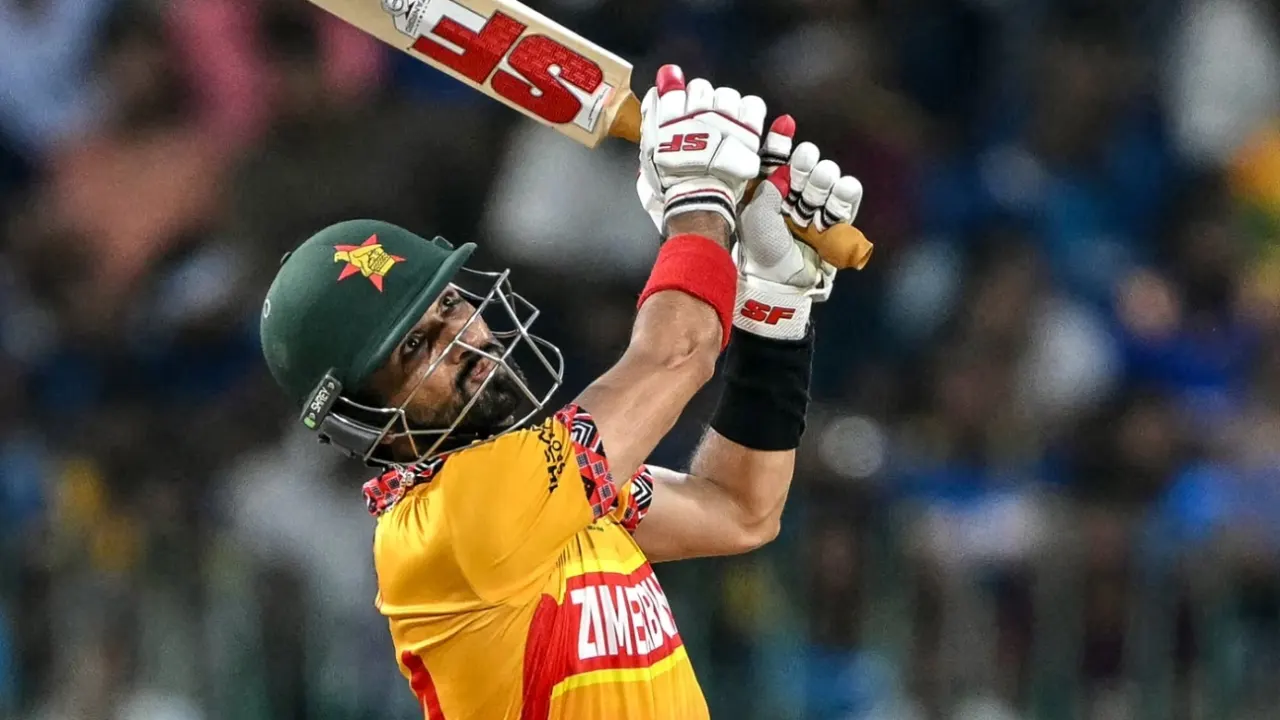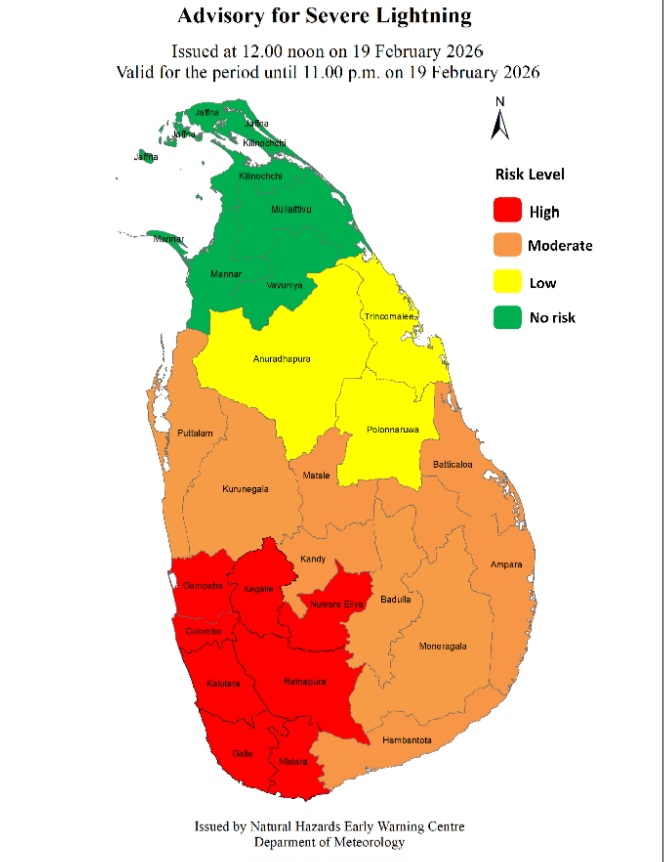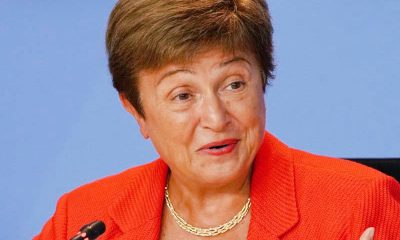Latest News
President and representatives of IMF discuss progress of EFF

A comprehensive discussion regarding the progress of the Extended Fund Facility (EFF) agreed with the International Monetary Fund (IMF) took place on Thursday (06) at the Presidential Secretariat, between President Anura Kumara Disanayake and the IMF delegation.
The current government has already reached a staff-level agreement with the IMF on the third review regarding the extended arrangement under the Extended Fund Facility (EFF) of USD3 billion.
The details of this review are expected to be presented to the International Monetary Fund’s Board of Directors by the end of this month. In this regard, discussions were held regarding the progress and the government’s involvement in continuing the program moving forward.
Once the approval is granted by the IMF Executive Board, Sri Lanka is expected to release the fourth tranche of the extended loan, amounting to 333 million dollars.
The discussion was also attended by IMF Executive Director Dr. Krishnamurthy Subramanian, Alternate Executive Director Dr. P. K. G. Harischandra, Deputy Minister of Economic Development Dr. Anil Jayantha Fernando, Secretary to the President Dr. Nandika Sanath Kumanayake, Secretary to the Ministry of Finance Mahinda Siriwadana, and Governor of the Central Bank of Sri Lanka Dr. Nandalal Weerasinghe.
Latest News
Zimbabwe stun Sri Lanka to enter Super Eight unbeaten

One time is a shock. Two times, and the second to beat hosts Sri Lanka at their own game, is Zimbabwe. Led by their canny bowling, Zimbabwe pulled Sri Lanka back from a flying start to keep them to 178 on a sluggish Premadasa track. Their opener Brian Benett, quickest scorer in their history, dropped anchor, stayed unbeaten like his team, and Sikandar Raza, Ryan Burl and Tadiwanashe Marumani did all the damage from the other end to seal their second-highest successful T20I chase.
Sri Lanka’s innings had three neat divisions: first 29 balls for 54 for 0, next 72 for 82 for 4 and then a finishing kick of 42 for 3 off the last 19 balls. Zimbabwe went Bennett and non-Bennett. Bennett scored 63 off 48; the other three combined for 102 off 64 balls. Raza was the decisive hand: 45 off 26 after the asking rate had gone past 11.
Brief scores:
Zimbabwe 182 for 4 in 19.3 overs (Brian Bennett 63*, Tadiwanashe Marumani 34, Ryan Burl 23, Sikandar Raza 45; Dasun Shanaka 1-26, Dushan Hemantha 2-36, Dunith Wellalage 1-27) beat Sri Lanka 178 for 7 in 20 overs (Pathum Nissanka 62, Kusal Perera 22, Kusal Mendis 14, Pavan Rathnayake 44, Dunith Wellalage 15*; Blessing Muzarabani 2-38, Graeme Cremer 2-27, Brad Evans 2-35) by six wickets
[Cricinfo]
Latest News
Ex-UK Prince Andrew arrested on suspicion of misconduct in public office

Andrew Mountbatten Windsor, the former United Kingdom royal, has been arrested on suspicion of misconduct in public office, according to UK media reports.
A statement from Thames Valley police was released Thursday which said, “As part of the investigation, we have today (19/2) arrested a man in his sixties from Norfolk on suspicion of misconduct in public office and are carrying out searches at addresses in Berkshire and Norfolk.
“The man remains in police custody at this time.”
“We will not be naming the arrested man, as per national guidance. Please also remember that this case is now active so care should be taken with any publication to avoid being in contempt of court, ” the statement added.
“Assistant Chief Constable Oliver Wright said: “Following a thorough assessment, we have now opened an investigation into this allegation of misconduct in public office.
“It is important that we protect the integrity and objectivity of our investigation as we work with our partners to investigate this alleged offence.
“We understand the significant public interest in this case, and we will provide updates at the appropriate time.”
Andrew, the former British prince, who was stripped of his title last year over his friendship with the late sex offender Jeffrey Epstein, should cooperate with the US authorities in their investigation, the UK Prime Minister Prime Minister Keir Starmer has said.
[Aljazeera]
Latest News
Advisory for Severe Lightning issued to the Western and Sabaragamuwa provinces and Nuwara-Eliya, Galle and Matara districts

Advisory for Severe Lightning
Issued by the Natural Hazards Early Warning Centre at 12.00 noon 19 February 2026 valid for the period until 11.00 p.m. 19 February 2026
The public are warned that thundershowers accompanied with severe lightning are likely to occur at some places in in the Western and Sabaragamuwa provinces and in Nuwara-Eliya, Galle and Matara districts after 2.00 p.m.
There may be temporary localized strong winds during thundershowers.
General public is kindly requested to take adequate precautions to minimize damages caused by lightning activity.
ACTION REQUIRED:
The Department of Meteorology advises that people should:
Seek shelter, preferably indoors and never under trees.
Avoid open areas such as paddy fields, tea plantations and open water bodies during thunderstorms.
Avoid using wired telephones and connected electric appliances during thunderstorms.
Avoid using open vehicles, such as bicycles, tractors and boats etc.
Beware of fallen trees and power lines.
For emergency assistance contact the local disaster management authorities.
-

 Life style5 days ago
Life style5 days agoMarriot new GM Suranga
-

 Business4 days ago
Business4 days agoMinistry of Brands to launch Sri Lanka’s first off-price retail destination
-

 Features5 days ago
Features5 days agoMonks’ march, in America and Sri Lanka
-

 Features5 days ago
Features5 days agoThe Rise of Takaichi
-

 Features5 days ago
Features5 days agoWetlands of Sri Lanka:
-

 News5 days ago
News5 days agoThailand to recruit 10,000 Lankans under new labour pact
-

 News5 days ago
News5 days agoMassive Sangha confab to address alleged injustices against monks
-

 News3 days ago
News3 days agoIMF MD here













